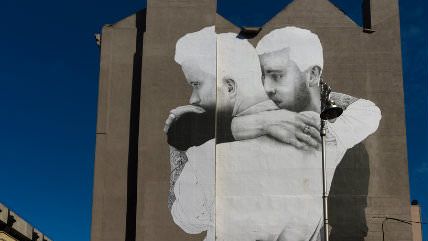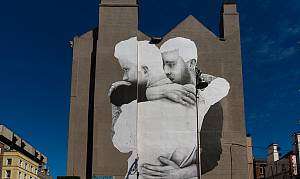Sheldon Richman on Same-Sex Marriage and Clarence Thomas' Confused Notion of Freedom
Like Scalia, Thomas sides with the ersatz "liberty" of the People (a collectivist notion) against the real liberty of the several persons.


Compared to Supreme Court Justice Antonin Scalia, his colleague Clarence Thomas is well regarded by at least some devotees of liberty, and this is not totally unjustified. Thomas has demonstrated a familiarity with the philosophy and history of natural law and natural rights, which he (at times) sees rooted in individual persons. However, this background knowledge has not kept him from taking positions abhorrent by libertarian standards. For example, he voted with the minority in Lawrence v. Texas, in which the court struck down a law criminalizing intimate acts between gay and lesbian individuals. To be fair, Thomas said his objection to the majority opinion was constitutional, not substantive: "I can find [neither in the Bill of Rights nor any other part of the Constitution a] general right of privacy."
Of course in Obergefell v. Hodges, Thomas voted against the proposition that state laws which deny recognition to same-sex marriages are unconstitutional because they violate the due-process/liberty and equal-protection clauses of the 14th Amendment. Even so, his dissenting opinion has material of interest to libertarians, writes Sheldon Richman. Thomas's main point is that Justice Anthony Kennedy's majority opinion did not demonstrate that denying recognition to same-sex marriage constitutes a violation of liberty. A denial of state benefits? Yes. But, he pointed out, to deny state benefits is not to deny liberty.


Hide Comments (0)
Editor's Note: As of February 29, 2024, commenting privileges on reason.com posts are limited to Reason Plus subscribers. Past commenters are grandfathered in for a temporary period. Subscribe here to preserve your ability to comment. Your Reason Plus subscription also gives you an ad-free version of reason.com, along with full access to the digital edition and archives of Reason magazine. We request that comments be civil and on-topic. We do not moderate or assume any responsibility for comments, which are owned by the readers who post them. Comments do not represent the views of reason.com or Reason Foundation. We reserve the right to delete any comment and ban commenters for any reason at any time. Comments may only be edited within 5 minutes of posting. Report abuses.
Please to post comments
Mute this user?
Ban this user?
Un-ban this user?
Nuke this user?
Un-nuke this user?
Flag this comment?
Un-flag this comment?